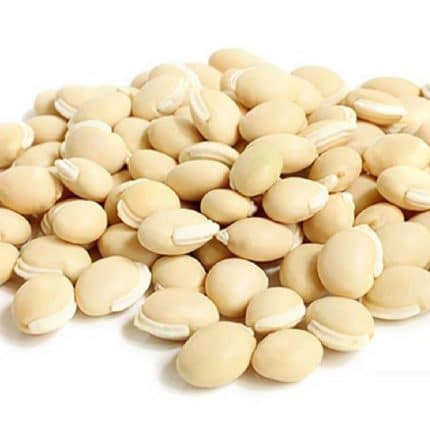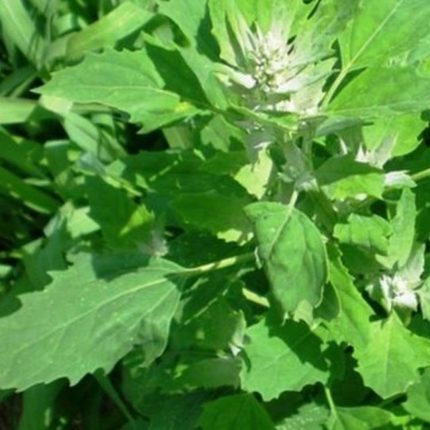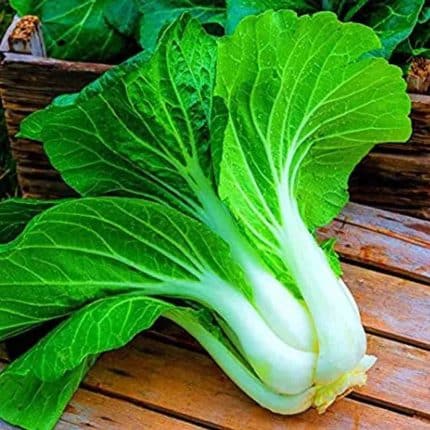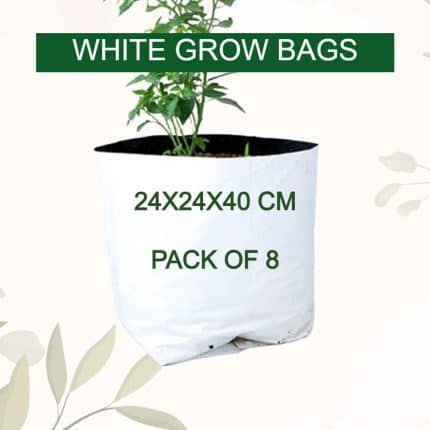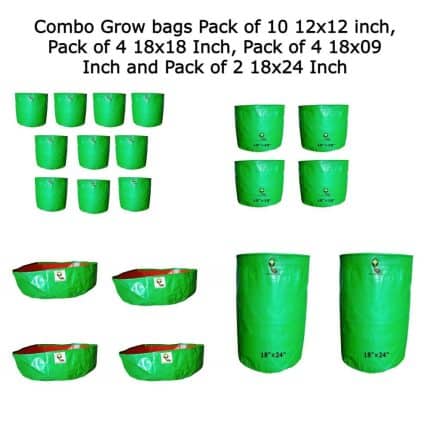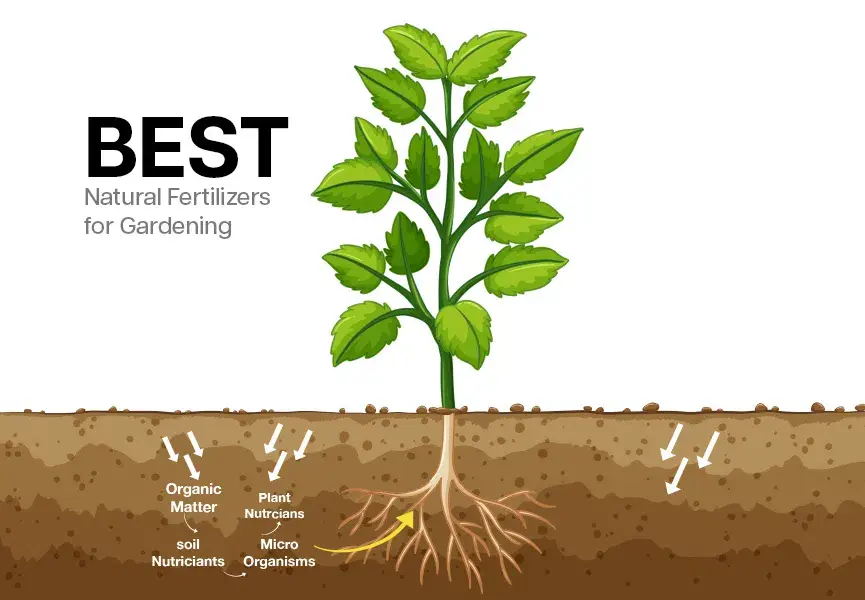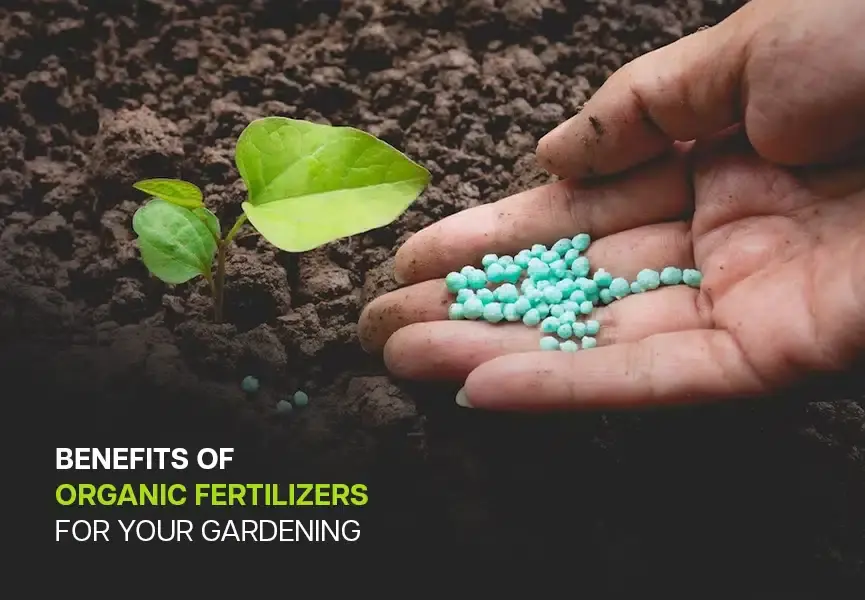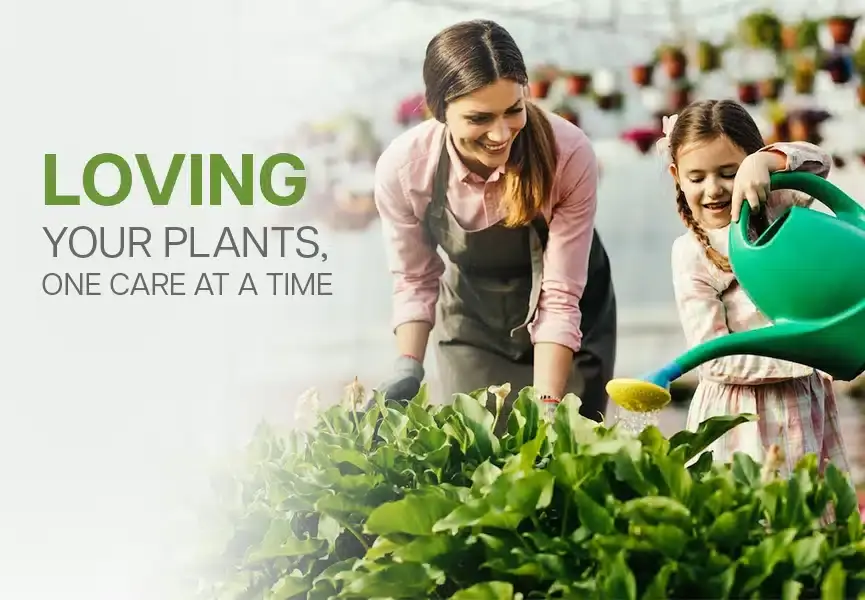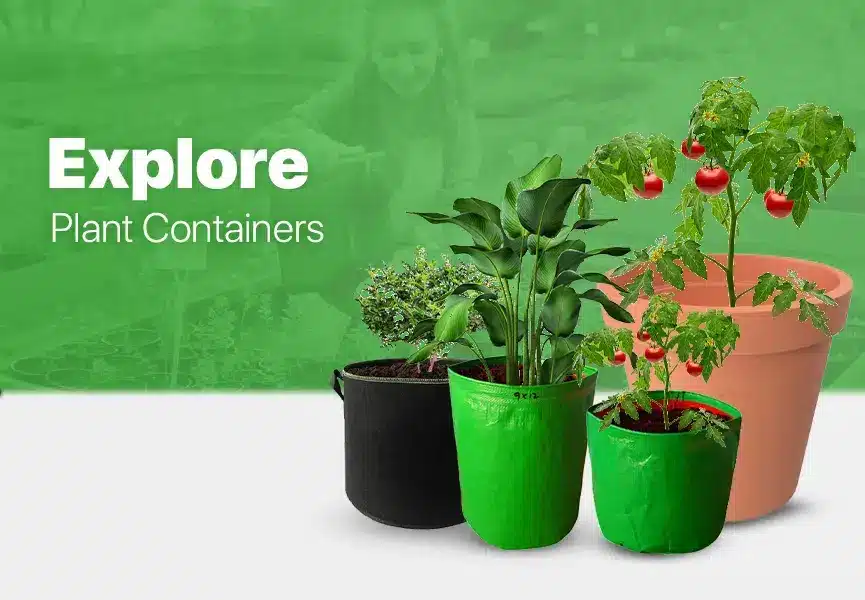A kitchen garden also known as a vegetable garden or edible garden, allows you to grow fresh and organic produce right at home. Here are some kitchen garden ideas to help you get started
Various Types of Kitchen Gardening :
- Container Gardening: Use Grow bags, pots, planters, and containers to grow herbs, greens, tomatoes, and another small vegetables on your terrace or balcony.
- Raised Beds: Create raised beds to grow a variety of vegetables, herbs, and even some fruits. Raised beds provide better drainage, easier weed control, and are easier to maintain.
- Vertical Gardening: Maximize your space by using vertical structures like creeper nets, trellises, wall-mounted planters, or hanging baskets to grow climbing plants like bitter gourd, bottle gourd, ridge gourd, cucumbers, and lablab.
- Greens Gardening: Grow a variety of spinach like amaranth, palak, black nightshade, gongura, and other salad greens together in a dedicated corner of your garden. This way, you can easily pick fresh ingredients for your daily meals.
- Compact Fruit Trees: Dwarf or compact fruit trees like guava, lemon, sapota, orange, or papaya can be grown in pots or small spaces, providing you with fresh fruit right from your garden.
- Companion Planting: Practice companion planting by growing complementary plants together to enhance growth and deter pests. For example, planting basil with tomatoes can improve the tomatoes’ flavor and repel certain pests.
Soil Mix Preparation :
When preparing a potting soil mix for vegetable plants, it’s crucial to provide the right balance of nutrients, aeration, and drainage. Here’s a general potting soil proportion that you can use as a starting point:
- Organic Matter (Compost): 40% – Compost is rich in nutrients and helps improve soil structure, water retention, and aeration.
- Garden Soil or Red soil: 40% – Garden soil or red soil provides a base for the potting mix and contributes some nutrients to the plants.
- Peat Moss or Coconut Coir: 20% – Peat moss or coconut coir helps retain moisture and improve water retention in the potting mix.
Please note that this is a general guideline, and the proportions may vary based on the specific needs of the vegetables you are growing, as well as your local climate and growing conditions. For certain plants, you may need to adjust the proportions to meet their specific requirements. For example, some plants may prefer a more well-draining mix, while others may require more moisture-retentive soil.
Also, consider adding some organic fertilizer or slow-release granular fertilizer like bone meal, seaweed, humic, and biofertilizers to provide essential nutrients to your vegetable plants.
Organic Fertilizer Types and uses :
Using organic fertilizers in your kitchen garden is an excellent way to promote healthy plant growth, enhance soil fertility, and produce nutritious, chemical-free fruits and vegetables. Here are some popular organic fertilizers that you can use in your kitchen garden:
- Compost: Compost is one of the best organic fertilizers you can use. It’s made from decomposed organic matter, such as kitchen scraps, yard waste, and leaves. Compost adds nutrients to the soil, improves soil structure, and enhances water retention. Vermicompost is one of the main composts widely used in the garden that contains more nutrients and micro-organisms that help to grow healthy plants.
- Manure: Well-aged animal manure, such as cow, goat, and chicken manure, is a valuable organic fertilizer. It’s rich in nitrogen, phosphorus, and potassium, and helps improve soil fertility.
- Bone Meal: Bone meal is a good source of phosphorus, which is essential for root development and flower and fruit production. It’s made from crushed and ground animal bones.
- Fish Emulsion: Fish emulsion is a liquid organic fertilizer made from fish waste. It contains a good balance of nutrients, including nitrogen, phosphorus, and potassium.
- Seaweed Extract: Seaweed extract is a fantastic organic fertilizer that provides a wide range of nutrients and growth-promoting compounds.
- Worm Castings: Worm castings, also known as vermicompost, are the rich organic matter produced by earthworms. They are nutrient-rich and help improve soil structure.
- Panchagavya: Panchagavya is well well-balanced cow dung-based fertilizer that has more nutrients and micro-organisms that promote the growth of the plant.
- Biofertilizers: Biofertilizers are nothing but bacteria and fungus-based fertilizers that help to intake the nutrients from the soil. Azospirillum helps to intake the nitrogen, Phospo bacteria helps to intake the phosphorus, potash bacteria helps to intake the potash and Trichoderma helps to protect the plants from soil-based diseases and fungal diseases. A small amount of these bio fertilizers per plant will be When using organic fertilizers, it’s essential to follow the recommended application rates and avoid over-fertilization, which can harm plants and lead to nutrient runoff. Additionally, consider rotating your fertilizers to provide a balanced nutrient supply to your kitchen garden.
Pest and disease control in Garden :
Controlling pests and diseases in a kitchen garden is essential to ensure healthy plant growth and a successful harvest. Here are some practical steps you can take to manage pests and diseases effectively:
- Healthy Soil: Start with healthy soil by enriching it with organic matter, compost, and well-balanced nutrients. Healthy plants are more resilient against pests and diseases.
- Crop Rotation: Rotate your crops each season to disrupt the life cycle of pests and prevent the buildup of diseases in the soil.
- Companion Planting: Planting certain herbs, flowers, or vegetables together can help deter pests and promote a more balanced ecosystem.
- Good Hygiene: Practice good garden hygiene by regularly removing dead plant material, fallen leaves, and other debris where pests and diseases can hide.
- Water Management: Avoid overwatering, as excess moisture can lead to fungal diseases. Water at the base of plants in the morning to allow leaves to dry during the day.
- Mulching: Use organic mulch to cover the soil surface, which helps to suppress weeds, retain moisture, and prevent soil-borne diseases from splashing onto plant foliage.
- Pruning and Thinning: Regularly prune plants to improve air circulation and remove any diseased or infested plant parts promptly.
- Natural Predators and Beneficial Insects: Encourage beneficial insects, such as ladybugs, lacewings, and predatory mites, to control pest populations naturally.
- Netting and Row Covers: Use netting and row covers to physically protect plants from pests like birds, insects, and other animals.
- Organic Pesticides and Sprays: If necessary, use organic pesticides and sprays like neem oil, insecticidal soap, or garlic spray to control pest infestations.
- Disease-Resistant Varieties: Choose disease-resistant plant varieties when possible, as they are less susceptible to common garden diseases.
- Monitor and Identify: Regularly inspect your plants for signs of pest or disease infestations. Early detection allows for prompt action and reduces the severity of the problem.
Remember to take an integrated approach to pest and disease control, combining different methods to maintain a healthy and balanced garden ecosystem. By using organic and environmentally friendly practices, you can manage pests and diseases effectively while promoting the overall health and productivity of your kitchen garden.
Remember to consider your climate, available sunlight, and the specific needs of the plants you want to grow when planning your kitchen garden. Happy gardening and enjoy the bountiful harvest of your homegrown produce!
You May Like This
-
Product on saleWhite Field Beans SeedsOriginal price was: ₹50.00.₹25.00Current price is: ₹25.00.
-
Product on saleChenopodium Album (Chakravarthini Keerai) SeedsOriginal price was: ₹60.00.₹25.00Current price is: ₹25.00.
-
Product on saleIndigo Flower SeedsOriginal price was: ₹90.00.₹39.00Current price is: ₹39.00.
-
Product on salePak Choi seedsOriginal price was: ₹100.00.₹49.00Current price is: ₹49.00.
Best Selling Products
-
Product on saleWhite Poly Grow Bags 24x24x40 CM Pack of 8Original price was: ₹400.00.₹199.00Current price is: ₹199.00.
-
Product on sale24x12x12 Rectangular Grow Bag Pack of 4Original price was: ₹900.00.₹499.00Current price is: ₹499.00.
-
Product on saleGrow Bags Combo for vegetables, spinach, creepers and fruit plantsOriginal price was: ₹3,000.00.₹1,699.00Current price is: ₹1,699.00.
-
Product on sale12×15 Inch Plant Grow Bags Pack of 10Original price was: ₹1,500.00.₹699.00Current price is: ₹699.00.




